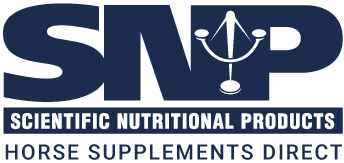Recent figures have indicated that veterinarians estimate that around 54% of horses and ponies in the UK are obese or overweight. Obesity in horses can result from a number of causes, ranging from genetics to improved forage quality in our pastures and a lack of exercise. Obesity can be extremely damaging as it can cause a number of serious health problems, including insulin resistance, chronic inflammation, heart conditions, and potentially a decreased life span. Forage is the most important aspect of your equine's diet so if your horse needs to go on a diet, it is vital If you do not cut the levels of fibre and forage in the diet. However it may be wise to reduce the amount of hours your horse is turned out on particularly lush pasture and provide then with low calorie hay as an alternative. In addition if you are on the "weight-watch" for your equine then choose a concentrate feed which is low in energy, low in starch in order to reduce calorie intake whilst providing adequate protein levels to prevent unwanted muscle loss. This should always be paired with appropriate supplementation of vitamin and minerals with a supplement such as Horse & Pony Multi-Vitamin Supplement to ensure your horse or pony is receiving the nutrients he needs even on a reduced diet. Top Tips to Prevent and Manage Obesity from Scientific Nutritional Products
- Feed plenty of forage, it will prevent issues such as gastric ulcers and hindgut dysfunctions whilst providing a source which low in energy compared to concentrate feed. If you are worried about obesity choose a forage with a low nutrient value.
- Always maintain regular, sufficient levels of exercise. If your horse is out of shape and overweight start your exercise regime slowly and gradually build it up. Ensure you assess your horse’s level of exercise realistically and remember if you just enjoy your horse for leisure riding and hacking he is unlikely to have the same nutritional requirements as a hard working competition horse.
- Try soaking your hay to reduce the levels of starch and sugars within it.
- Invest in a standard size feed scoop allowing you to measure exactly how much feed your horse receives per day allowing you to regulate his portions accurately.
- Supply a vitamin and mineral supplement in the diet such as Horse and Pony Multi-Vitamin Supplement in order to ensure your horse is receiving the essential nutrients they need which is especially important when feed levels are reduced.

